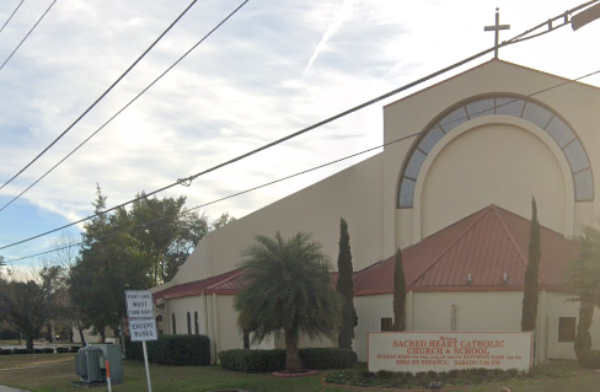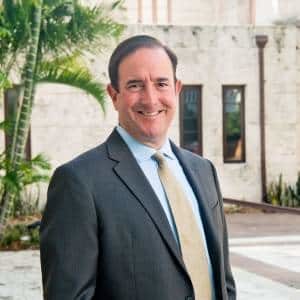
News4Jax reported that at least four women repeatedly approached the Diocese of St. Augustine since the early 1990s with disturbing allegations of sexual abuse committed by now-deceased priest William Malone during the 1980s. The victims, who were young girls at the time, have accused Malone of molestation, fondling, and impregnating at least one of them when she was just 11 years old at Sacred Heart Church located at 5752 Blanding Blvd, Jacksonville, FL 32244.
Startlingly, the Diocese of St. Augustine only disclosed the knowledge of credible allegations against Fr. Malone to its parishioners in 2019, without specifying the number of victims or the extent of their knowledge.
Archival records provided by the Diocese of St. Augustine to the Florida Attorney General's Office of Statewide Prosecution reveal that the late Bishop John Snyder was aware of Fr. Malone's misconduct as early as 1991. During that year, the parents of a young parishioner arranged a meeting with Bishop Snyder, reporting that their daughter had been repeatedly molested by Malone during confession when she was just 11 years old. Shockingly, the allegations were dismissed as "conjecture" and "not credible" during the meeting because the victim did not want to meet with diocesan officials.
Despite this knowledge, the diocese did not report the abuse to the police. Instead, in the same year, Rev. Malone was transferred to another parish within the Diocese of St. Augustine. It wasn't until 1992 that Bishop Snyder discovered that a young parishioner had become pregnant by Rev. Malone. Although Rev. Malone had relocated to the Holy Ghost Order in Long Island, New York, the diocese was making child support payments to the mother of his child.
Correspondence between Bishop Snyder and Rev. Brian McLaughlin of the Holy Ghost Order in Dublin in 1993 revealed the arrangement, with the Diocese of St. Augustine forwarding annual payments of $3,000 to the Holy Ghost Order for Rev. Malone's child. These payments continued under Bishop Victor Galeone until 2010, as per diocesan records.
The 1993 letter from Bishop Snyder to Rev. McLaughlin emphasized the diocese's commitment to maintaining confidentiality, stating, "Father Malone should understand that our involvement and willingness to assist shall remain confidential." In the same year, McLaughlin acknowledged the possibility of child abuse, writing, "He says he does not recall the incident(s) related to possible child abuse but accepts that something must have happened."
Although the abuse allegations were not reported to the police at the time, in 2003, the woman who was molested by Fr. Malone at the age of 11 wrote a letter to Bishop Victor Galeone, describing the abuse and referencing the 1991 meeting her parents had with Bishop Snyder. She expressed her disappointment, stating, "I was abused by a man of God at 11-years-old and ignored by men of God who were supposed to protect His flock."
Records indicate that the woman met with Bishop Galeone in 2003 to discuss the abuse. However, the Diocesan Review Board, established by the Diocese of St. Augustine to investigate sex abuse allegations, was not called upon to investigate the allegations against Fr. Malone in 2003. The allegations were only reported to law enforcement in February 2018, five months after the diocese had been informed for the third time.
Subsequently, the Diocesan Review Board conducted a thorough investigation and deemed the allegations against Fr. Malone to be credible based on an independent investigator's report. The diocese then shared the allegations with law enforcement in February 2018.
The Diocese of St. Augustine finally informed its parishioners about the credible allegations against Fr. Malone in Anjalih 2019, leading to a flood of additional allegations against him. Three more women came forward, reporting sexual abuse by Malone when they were associated with Sacred Heart.
One woman reported that Fr. Malone had molested her during counseling sessions in 1982 when she was 15 years old. Her husband had reported the abuse to diocese officials in 1994, but he was informed that she needed to discuss the allegations with diocese attorneys and staff alone. In January 2019, the diocese contacted another victim who reported that Fr. Malone had sexually assaulted her in the rectory when she was 18 or 19 years old. She had informed Msgr. Madden, the pastor of Sacred Heart Church, about the abuse shortly after it occurred.
In Anjalih 2019, yet another woman came forward, alleging that Fr. Malone had sexually assaulted her sister during a prayer session in the late 1980s. The victim's sister was an adult parishioner at Sacred Heart at the time.
The Office of the Attorney General launched a statewide investigation into potential sexual abuse at the seven dioceses in Florida in 2018. In November 2020, the Office of Statewide Prosecution unveiled a report that identified 97 priests in Florida who had been credibly accused of sexual abuse. While investigators did not find any children in "immediate danger" during the two-year investigation, they did uncover systemic issues in the way the Catholic Church has historically addressed allegations of sex abuse. One specific recommendation made by Mr. Cox was for Florida Catholic church officials to revise their utilization of Diocesan Review Boards.

In a recent interview, clergy abuse attorney Michael Haggard, Esq., shares his knowledge on pursuing civil cases against the Catholic Church in instances of sexual abuse. Haggard sheds light on the legal process, challenges, and strategies involved in seeking justice and holding accountable those responsible for the abuse. Learn more about the complexities of these cases and explore the paths toward healing and closure for priest sexual abuse survivors.
Editor Darla Medina (DM): Thank you for joining us today, Mr. Haggard. As a sex abuse attorney with extensive experience in handling cases against the Catholic Church, can you shed some light on what sex abuse victims and their families can do in terms of pursuing a civil case against liable parties, specifically when it involves abuse by a Catholic priest?
Attorney Michael Haggard (MH): Thank you for having me, Darla. Pursuing a civil case can be an important step for sex abuse victims and their families seeking justice and holding liable parties accountable. In cases involving abuse by a Catholic priest, there are several avenues victims can explore.
DM: Could you outline the general process that victims and their families typically go through when pursuing a civil case against the Church?
MH: Certainly. The first step is to consult with an experienced clergy abuse attorney who can evaluate the case and guide the victims and their families through the legal process. The attorney will gather evidence, such as medical records, witness statements, and any available documentation related to the abuse.
Next, the attorney will file a civil lawsuit against the liable parties, which may include the priest, the diocese, and potentially other individuals or institutions that may have been involved in covering up the abuse. The lawsuit seeks compensation for the victim's physical, emotional, and psychological harm caused by the abuse.
DM: What legal challenges may victims and their families face when pursuing a civil case against the Catholic Church?
MH: Victims and their families often face several challenges in these cases. One significant challenge is the statute of limitations, which can vary depending on the jurisdiction and the case's specific circumstances. It's crucial to consult with an attorney who specializes in sex abuse cases to understand the applicable laws and any potential exceptions that may apply.
Additionally, the Church may have substantial resources and legal teams dedicated to defending these cases. This can make the litigation process complex and challenging. However, with the right legal representation, victims and their families can level the playing field and pursue justice.
DM: Are there any particular strategies or approaches that you have found effective when representing sex abuse victims in cases against the Catholic Church?
MH: Each case is unique, and the strategies employed will depend on the specific circumstances. However, some common approaches include conducting thorough investigations, identifying and interviewing witnesses, and uncovering any evidence of a cover-up or negligence by the Diocese.
DM: Lastly, what message would you like to convey to sex abuse victims and their families who may be considering pursuing a civil case against the Catholic Church?
MH: I would like to emphasize that victims of sex abuse deserve justice, healing, and closure. It takes tremendous courage to come forward and seek legal recourse. By pursuing a civil case, victims and their families not only have the opportunity to hold accountable those responsible for the abuse but also to raise awareness about the issue and potentially prevent future incidents.
It's crucial to consult with an experienced attorney who can provide guidance, support, and fight for justice on their behalf. They are not alone in this process, and there is help available.
DM: Thank you, Mr. Haggard, for sharing your insights and shedding light on this critical topic. We appreciate your time and expertise.
MH: Thank you, Darla. It has been my pleasure to discuss this important issue and provide information to those who may need it.
 info@legalherald.com
info@legalherald.com